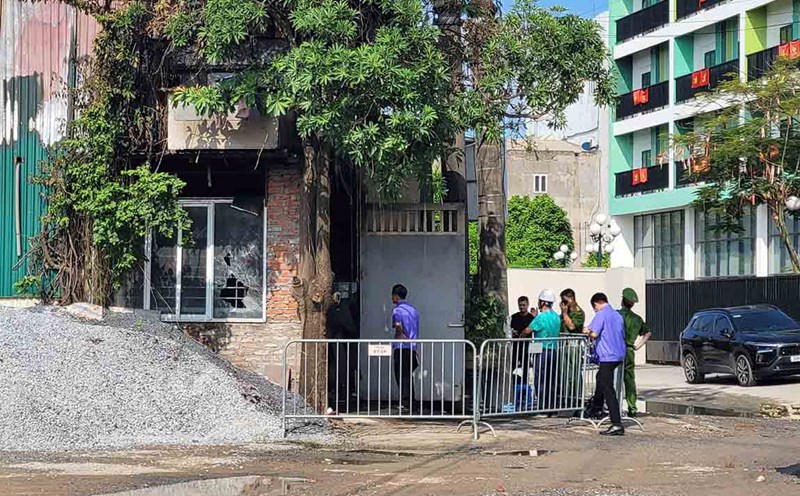Legal barriers hinder the resilience of the private sector
Speaking at the Special Session on Institutional institutions - Enterprises Rising at the 2025 Private Economy Forum, Dr. Le Truong Son - Principal of Ho Chi Minh City University of Law - said that Resolution No. 68-NQ/TW on private economic development pointed out that the private economy is still facing many barriers to development, has not broken through in scale and competitiveness, has not met the requirements, and is expected to be the core force of the country's economy. There are many causes leading to this situation, including causes from problems and shortcomings of the body and the law.
Proposing solutions to remove barriers for the private economic sector, Ms. Luu Thi Thanh Mau - Vice President of the Vietnam Young Entrepreneurs Association said that it is necessary to strongly innovate and resolutely change the mindset from "management" to "creating and serving".
When businesses and people truly become the center of the policy, all decisions will be closer to reality, easier to put into practice and bring practical results, Ms. Luu Thi Thanh Mau emphasized.
According to the Vice President of the Vietnam Young Entrepreneurs Association, innovation in thinking must be accompanied by specific and drastic actions, and it is necessary to build an independent monitoring mechanism for policy implementation. This mechanism requires the participation of many components, especially the business community - the subjects directly affected. The legalization of major policies is necessary to create stability, transparency and eliminate the "term policy" mentality. When a policy becomes a law, it not only has legal value but also demonstrates the State's long-term commitment to businesses and people, creating a stable and reliable investment environment.
Private enterprises shake off due to legal risks
According to Mr. Dau Anh Tuan - Deputy General Secretary, Head of the Legal Committee (Vietnam Federation of Commerce and Industry - VCCI) - one of the major barriers that hinders the sustainable and healthy development of this region is legal risks and the risk of legalization in economic and civil relations. Enterprises are afraid to invest, do not dare to experiment with new business models; individual businesses become too cautious, even withdrawing from the market due to concerns about being prosecuted for criminal liability in unclear legal situations, Mr. Dau Anh Tuan emphasized.
Mr. Dau Anh Tuan analyzed that one of the main reasons leading to the risk of criminalization is the lack of clarity in criminal law regulations, the line between crimes and administrative-civilian violations has not been firmly established.
To fundamentally solve this problem, it is necessary to review and amend economic crimes in the Penal Code according to the principle - only handle crimes in truly necessary cases, when the behavior has intentional, fraudulent elements, causing serious consequences, cannot be remedied, or shows signs of profiteering. Prioritize the application of administrative, civil and economic measures in cases where the consequences can be remedied through negotiation, compensation or behavior adjustment, Mr. Dau Anh Tuan suggested.
In addition to amending regulations on crimes, Mr. Dau Anh Tuan said that it is necessary to pay special attention to reforming the criminal procedure process to ensure the legitimate rights and interests of businesses and individuals, avoiding the application of unnecessary preventive measures, causing negative impacts on production and business activities.
If the legal system is designed in the direction of support instead of sanctions, civilization instead of justarization, it will unblock the flow of innovation, creativity and investment in the private sector - a key factor for sustainable economic growth in the coming period, Mr. Dau Anh Tuan emphasized.











